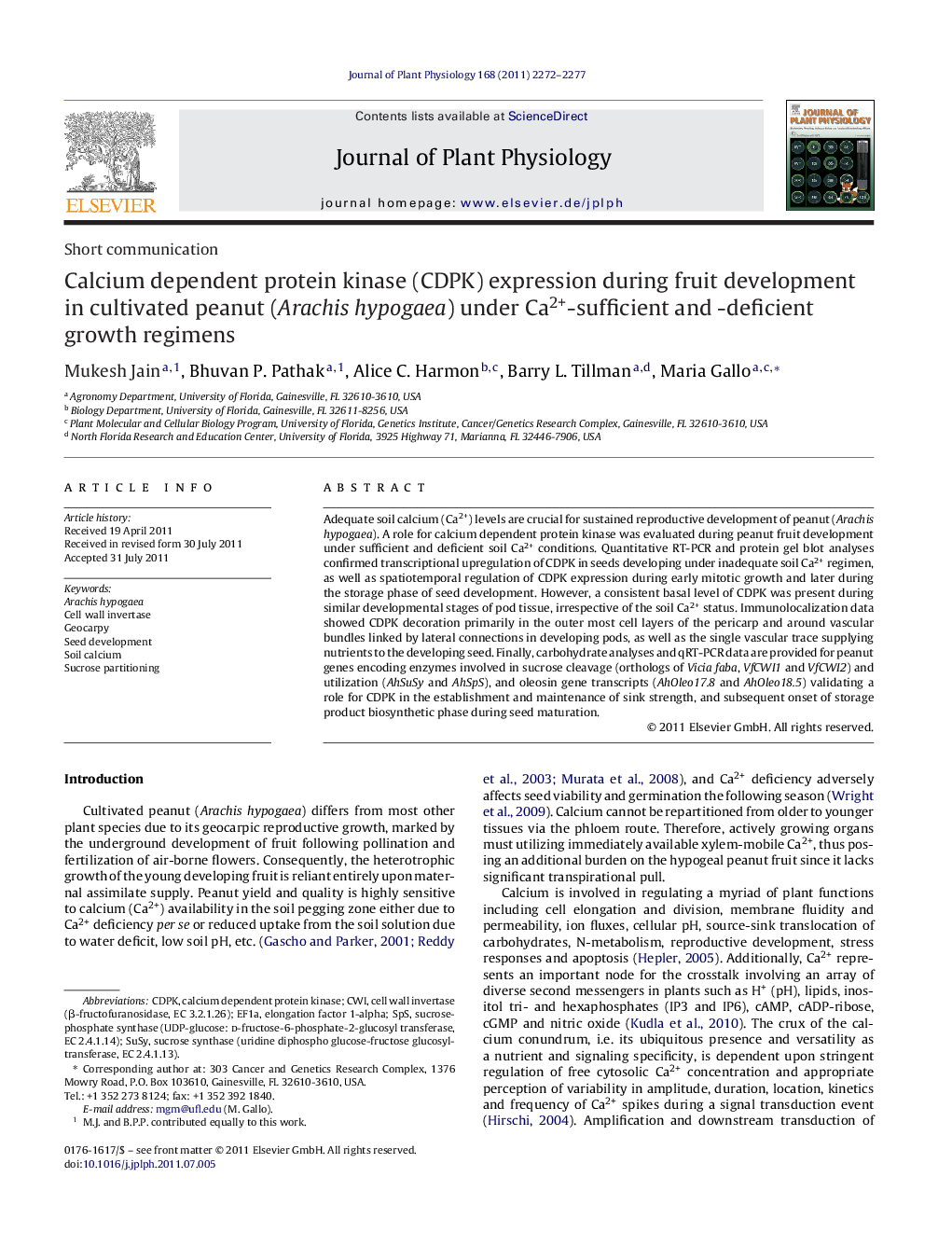| Article ID | Journal | Published Year | Pages | File Type |
|---|---|---|---|---|
| 2056541 | Journal of Plant Physiology | 2011 | 6 Pages |
Adequate soil calcium (Ca2+) levels are crucial for sustained reproductive development of peanut (Arachis hypogaea). A role for calcium dependent protein kinase was evaluated during peanut fruit development under sufficient and deficient soil Ca2+ conditions. Quantitative RT-PCR and protein gel blot analyses confirmed transcriptional upregulation of CDPK in seeds developing under inadequate soil Ca2+ regimen, as well as spatiotemporal regulation of CDPK expression during early mitotic growth and later during the storage phase of seed development. However, a consistent basal level of CDPK was present during similar developmental stages of pod tissue, irrespective of the soil Ca2+ status. Immunolocalization data showed CDPK decoration primarily in the outer most cell layers of the pericarp and around vascular bundles linked by lateral connections in developing pods, as well as the single vascular trace supplying nutrients to the developing seed. Finally, carbohydrate analyses and qRT-PCR data are provided for peanut genes encoding enzymes involved in sucrose cleavage (orthologs of Vicia faba, VfCWI1 and VfCWI2) and utilization (AhSuSy and AhSpS), and oleosin gene transcripts (AhOleo17.8 and AhOleo18.5) validating a role for CDPK in the establishment and maintenance of sink strength, and subsequent onset of storage product biosynthetic phase during seed maturation.
